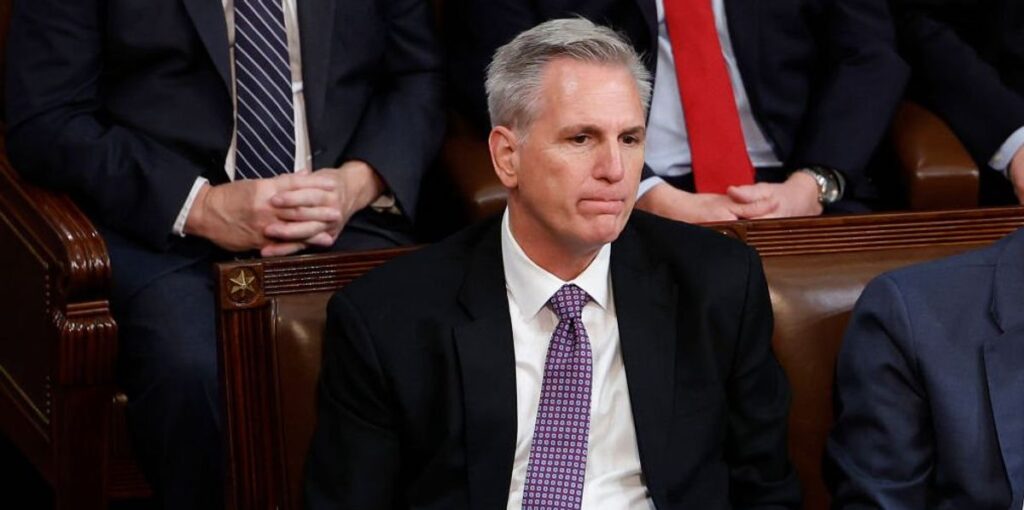Conservative lawmakers upset about the deal that House Speaker Kevin McCarthy made with President Joe Biden to end the debt ceiling crisis suggested Tuesday they may move to remove McCarthy as speaker.
What is the background?
McCarthy’s speaker election was historically contentious. It required 15 ballots, and McCarthy only succeeded after he won enough support from conservative holdouts in the House Freedom Caucus.
To earn their support, McCarthy essentially entered into a power-sharing agreement with the conservative caucus, agreed to House rule changes, and made promises about spending matters, including the debt ceiling, which was an issue at the time.
What is happening now?
After an agreement was reached over the weekend to avert default, McCarthy took a public victory lap. But privately, the White House says Democrats are the real winners of the negotiations, an assertion that conservative and moderate Republicans alike would probably agree with.
So on Tuesday, one Republican lawmaker floated removing McCarthy as speaker for what some conservatives view as capitulation to Biden.
“Absolutely,” Rep. Dan Bishop (R-N.C.) said when asked if McCarthy should be removed. “It is inescapable to me. It has to be done.”
Ironically, it now takes just one discontented lawmaker from either party to invoke the procedural maneuver — known as the “motion to vacate the chair” — used to remove the speaker. Restoring the single-vote motion to vacate is one of the rules to which McCarthy agreed in order to win the speakership.
Bishop, however, said he would only move forward to oust McCarthy with support from more colleagues.
“I don’t make single decisions like that alone. And so it depends on what the members who have courage [also do],” he told Politico.
Unfortunately for McCarthy, it’s not just Bishop.
According to Politico, Rep. Ken Buck (R-Colo.) raised the issue on a private call with House Freedom Caucus members on Tuesday. Buck reportedly argued that McCarthy had violated his promises to the caucus. Moreover, Rep. Chip Roy (R-Texas) accused McCarthy of a “betrayal of the power sharing arrangement that we put in place.”
How did McCarthy respond?
The speaker dismissed the criticism.
“I’m not sure what, in the bill, people are concerned about,” he said. “I think it is an easy vote for Republicans to vote for it.”
There is little doubt the agreement, known as the Fiscal Responsibility Act, will be passed in the House and Senate before the June 5 deadline. There will be, however, holdouts on both sides of the aisle.
Like Blaze News? Bypass the censors, sign up for our newsletters, and get stories like this direct to your inbox. Sign up here!


